
You may have bitten down on a hard food or object, or perhaps you had a cavity that weakened your tooth. Either way, your tooth is now broken, and the steps you take to care for it will determine whether you get to keep your natural tooth or not. Millions of people suffer from broken teeth every year, so you are not alone. However, that does not mean your newly cracked tooth does not need immediate attention.
What is a Broken Tooth?
A broken tooth is one that has been fractured, chipped, cracked, broken apart, or completely knocked out of the mouth. You may or may not feel your tooth break, depending on the extent of the break and whether your tooth was decaying prior to the break. It is usually very easy to diagnose a broken tooth, because the evidence will be visible. In the case of hairline cracks in the teeth, you may start to note a sensitivity to hot or cold in the neighborhood of the fracture.
The Right Way to Handle a Broken Tooth
As soon as you know your tooth is broken, chipped, or fractured, make an appointment to visit our emergency dental office. Even the tiniest fractures require attention: bacteria can infect the fractured area, which could cause you to lose the tooth altogether.
Until you are in our office, you can manage your pain using over-the-counter pain medication, such as Tylenol, or you can apply a cold compress to prevent swelling and inflammation. Be sure to rinse your mouth with warm salt water after every meal until you are able to visit us.
Keep in mind that while pain medication is an effective way to manage a broken tooth at home, it is only a temporary fix. Broken teeth should not be treated solely at home, and over-the-counter solutions are not substitutions for professional dental care. Failing to make an appointment with Dr. Stephen Hudis after breaking or chipping a tooth can place your health at risk.
Treatment
Treating your broken tooth will depend on the type of break you have and how much of the tooth is affected. According to the American Dental Association, a minor chip or tiny fracture line may be repaired with bonding. On the other hand, a more serious break that exposes the tooth's pulp may require a root canal or extraction to prevent infection. Ultimately, our team here at Princeton Restorative & Implant Dentistry will explain to you the best treatment plan based upon our evaluation of the condition and extent of your break.
If you have broken, cracked, chipped, or fractured one or more of your teeth, don’t hesitate to contact our office immediately. We specialize in emergency dental care and are available to serve you 24 hours a day, seven days a week.







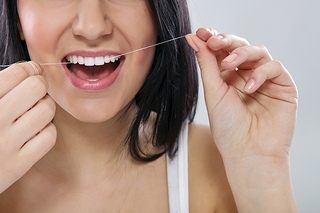



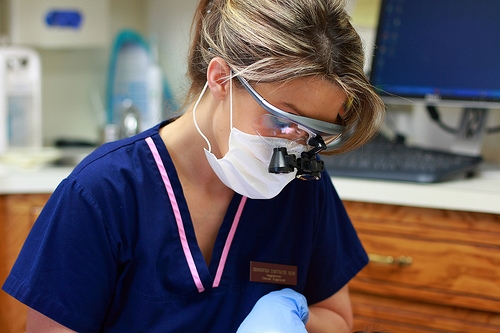







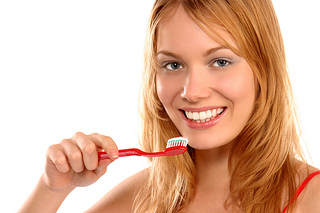

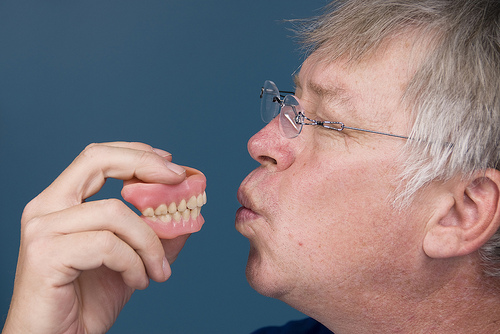


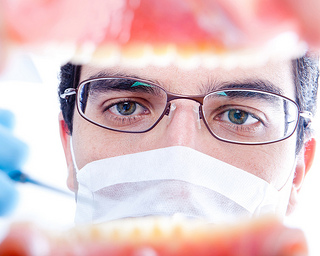


 What is Oral Cancer?
What is Oral Cancer?

 Memorial Day weekend, a time to remember and honor the men and women lost while serving for our country. Memorial Day is also the unofficial start of summer, and for many folks getting out of town for three days after being cooped up in the classroom or the office spells sweet, sweet relief.
Memorial Day weekend, a time to remember and honor the men and women lost while serving for our country. Memorial Day is also the unofficial start of summer, and for many folks getting out of town for three days after being cooped up in the classroom or the office spells sweet, sweet relief.




 The year is almost over, so we wanted to ask what was memorable about 2011 for you, and what are you looking forward to in 2012? Do you have a new year's resolution, or any exciting plans for the coming year?
The year is almost over, so we wanted to ask what was memorable about 2011 for you, and what are you looking forward to in 2012? Do you have a new year's resolution, or any exciting plans for the coming year? With the hustle and bustle of the holiday season here,
With the hustle and bustle of the holiday season here,  With the school year close to winding down for a lot of patients of
With the school year close to winding down for a lot of patients of 
 Happy Veteran's Day! Today is a day to thank all military veterans and the men and women currently on active duty that put their lives on the line for the freedoms we all enjoy.
Happy Veteran's Day! Today is a day to thank all military veterans and the men and women currently on active duty that put their lives on the line for the freedoms we all enjoy. Princeton Restorative and Implant Dentistry, serving
Princeton Restorative and Implant Dentistry, serving 
 This coming Monday, July 4th, is Independence Day and the United States of America will be turning 235 years old! It’s a day to commemorate the signing of the Declaration of Independence and also a time for every American to pay homage to our soldiers, past and present, who have placed themselves in harm’s way so that we may continue to enjoy our freedom.
This coming Monday, July 4th, is Independence Day and the United States of America will be turning 235 years old! It’s a day to commemorate the signing of the Declaration of Independence and also a time for every American to pay homage to our soldiers, past and present, who have placed themselves in harm’s way so that we may continue to enjoy our freedom. Memorial Day weekend, a time to remember and honor the men and women lost while serving for our country. Memorial Day is also the unofficial start of summer, and for many folks in the Princeton area, getting out of town for three days after being cooped up in the classroom or the office spells sweet, sweet relief.
Memorial Day weekend, a time to remember and honor the men and women lost while serving for our country. Memorial Day is also the unofficial start of summer, and for many folks in the Princeton area, getting out of town for three days after being cooped up in the classroom or the office spells sweet, sweet relief.

